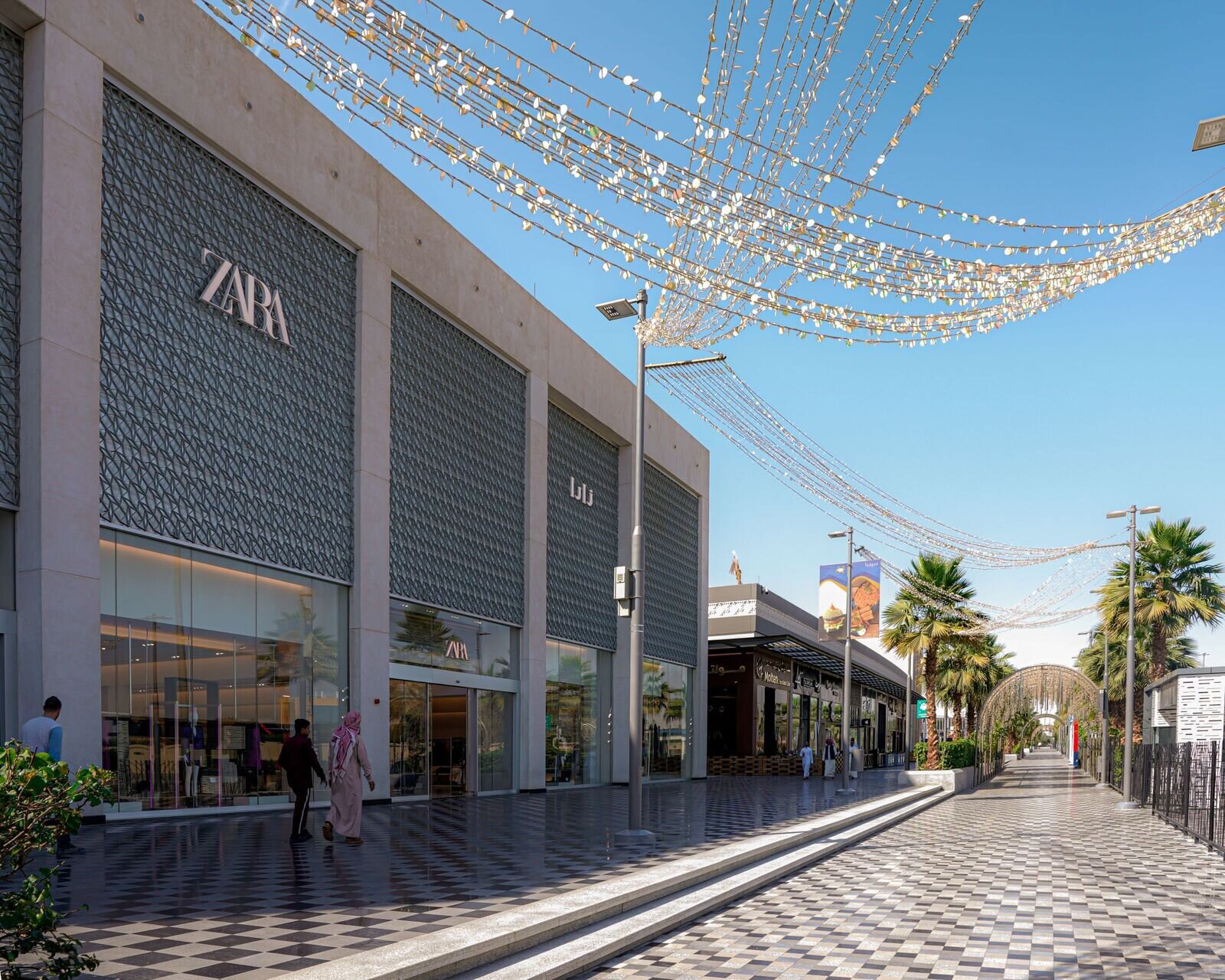Saudi Retail Trade: Horizon and Anticipation

Saudi retail expected to grow up to 176.5 billion USD by 2026.
The retail sector is a major economic sector of the Saudi Arabian economy. Saudi Arabia itself is one of the biggest trade centers in the Middle East and Northern Africa. The Kingdom is the largest consumer market, and its population represents more than 60% of the total population of the Gulf region countries and enjoys a high per capita purchasing power feeding demand for the retail and service sectors. In line with the strategic objectives adopted by the Kingdom with its "Saudi Vision 2030," it is expected for the retail sector to grow considerably, coupled with the increase in households’ disposable income and living standards. Another boost are the forecasts of welcoming 100 million tourists by 2030 and newly established cities expected to serve as international commercial destinations. Saudi Arabia is likely to become a hub for the world’s top-tier brands of both wholesale and retail stores, increasing demand for all goods in and out these stores.
A report, published recently, predicts a leap in the Saudi’s retail market of up to 176.5 billion USD by 2026,
IMG:202218:
According to “G.WORLD”, a specialized research company in Riyadh, the growth in the Saudi retail sector depends on various fundamental factors, including:
- Innovative new technological solutions for seller-buyer transactions to digitalize the retail sector. January 2023 witnessed the initiation of the second stage of transition to the e-invoicing system, planned to digitally substitute the paper invoicing and transactions system. The e-invoicing system aims at increasing trust in stores, protecting consumers, accomplishing tax parity among stores, accelerating transactions, preventing accounting errors and saving the costs of paper transactions.
- Adopting modern retail practices, including the use of all methods and technologies enhancing the sale process, for example but not limited to: digital marketing and retail trade; artificial intelligence and its contribution to monitoring inventory, connecting branches together, reviewing sales taking place, as well as analyzing sale and purchase data of consumer groups.
- Indirect support to the retail sector through supporting sectors significantly increasing the revenues of the Saudi retail sector, such as entertainment and tourism. Tourism is a corner stone of stimulating internal trade within the Kingdom, due to the spending of both international and domestic tourists during their stay, totaled at 95.62 billion SR in 2021, at a growth rate of 50.7% compared to 2020. In addition, the Kingdom seeks hosting the largest number possible of Muslims from all over the world to participate in the Hajj and the Umrah. To that end, the Kingdom launched a transit visa program that allows transit-passing travelers to enter the country, for a maximum stay period of 96 hours, for several purposes, including: preforming Umrah rituals, visiting The Great Mosque of Mecca and Prophet Mohammad Mosque “Al Masjid an Nabawi”, attending touristic events and activities. Total religious tourism expenditure amounted to 34.1 billion SR during the first three quarters of 2022.
- The increased GDP per capita during Q2/2022 compared to Q2/2021, at 29.82 thousand SR versus 20.62 thousand SR, respectively.
- The growth of online shopping, especially since the outbreak of covid-19, where it became the optimal solution for a considerable number of consumers, merchants, and owners of micro and medium size enterprises, which is clearly reflected in the number of electronic buyers on different digital platforms estimated at 22.03 million users in 2022, representing an annual increase of 2.79% compared to 2021. This is partly attributed to the fact that almost the entire population of the Kingdom are internet users (99%), while 79.3% of them are social media users (29.1 million usersaccording to the January 2023 statistics).
A Principal and Vital Sector
Mr. Ahmed Alarfaj, a franchise consultant, stressed that retail trade, as an economic sector, is of utmost importance to the Kingdom of Saudi Arabia, where it significantly contributes to the GDP, provides job vacancies and enhances the living standards for citizens. Saudi retail trade is characterized by its variety, and it is a cornerstone for the national economy; having under its umbrella several stores, shopping malls, and local and international markets. On the other hand, digital trade that has grown markedly in the recent years.
Commenting on the report, Mr. Alarfaj pointed out that the Saudi government endeavors to support and develop the retail sector, encourage investments therein and promote the business environment as whole, by regulating the markets, protecting the consumers and creating competitive environment for trading companies and institutions. Furthermore, Saudi retail trade is a main attracting factor for tourists; where it facilitates their shopping experience and comprises of a large number of mega malls, lavish stores and traditional markets reflecting Saudi traditions and culture.
In this context, the Saudi Government developed a number of programs and initiatives aiming at developing the economy and enabling the private sector to engage the market in an effective, sustainable and varied economic environment; which serves the goals of the State and attracts external and internal investment capital. The Saudi Vision 2030 includes a reform and development plan for the financial sector, aiming at achieving economic development and sustainability and financial inclusion among various sectors. It represents a vital addition to the National Transition Program which is intent on upgrading the infrastructure necessary to empower the economy, facilitate market entry and increase its attractiveness.
Growth Forecasts
The report stressed the fact that the demographic structure of the Kingdom and the goals of "Saudi Vision 2030" are indicators of a healthy environment for technology-based retail sector to achieve growth. This comes in line with the Kingdom’s vision, which is centered on transition to a digital economy, as well as its development plans to increase the population and implement major infrastructural projects, with a focus on entertainment and tourism sectors. It is expected for major cities in the kingdom, namely Riyadh, Jeddah, Dammam and Mecca, to turn into international retail destinations; i.e. companies working in this sector will be in need of smart and cloud management systems to cope with international and local trends. In terms of regulating the sector the Taz and Customs Authority is introducing e-invocing is to replace manual or scanned invoices.
Featured franchises
No featured franchises
Breaking news
Show all
Franchise model in sustainable water solutions
An international franchise network focusing on water generation and distribution technologies designed for commercial and residential markets.

Milano Cosmetics franchise overview
Milano Cosmetics offers a global franchise model for professional beauty salons with defined financial terms, operational support, and international p

REFAN franchise network
REFAN is a European cosmetics and perfume manufacturer offering a standardized franchise model based on private-label production and retail.

Neuhaus Chocolates franchise model
An established Belgian chocolate house offering a structured franchise concept built on heritage, premium quality and international brand recognition.

